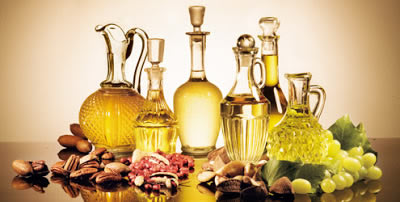Difference between Sunflower Oil and Vegetable Oil
Key difference: Oils are the most essential and basic ingredients in cooking. Substantially, sunflower oil is one type of vegetable oils; which is obtained from the sunflower seeds. While, there are various types of vegetable oils available in the market with diverse and versatile qualities.
There are various types of vegetable oils available in nature, which are enriched with specific qualities. Vegetable oils are the integral elements in frying, deep frying, baking and other types of cooking techniques. Like wise, sunflower oil is known to be the most preferred type of oils in cooking due to its essential and known health and immunity providing properties. While, vegetable oil is obtained from several crucial plants and elements which occur in the nature.
.jpg)
Sunflower oil is known for its benefits of maintaining a healthy and immune life. The oil is extracted from the sunflower seeds, which are rich in vitamin K. The oil is of non volatile nature and its fat contents are desirable for the heart related issues (cardiovascular). It is a monounsaturated (MUFA)/polyunsaturated (PUFA) mixture of mostly oleic acid (omega-9)-linoleic acid (omega-6) group of oils. The oil also contains a considerable amount of vitamin E, sterols, squalene, and other aliphatic hydrocarbons, terpene and methyl ketones (chiefly methyl nonyl ketone). There are basically two types of sunflower seeds- confection sunflower seeds and non-oil sunflower seeds; which are used in accordance to their usages. The oil is usually used in varieties of cooking techniques like frying, roasting and deep frying. Also; the oil is easy to use as a substitute into the daily diet as it has a natural and light taste. Along with cooking applications, the oil also has numerous other advantages over skin, and hence is known for commercial cosmetic purposes; for example it is used as emollients in the cosmetic pharmaceutical industries.

Vegetable oils are extracted from the plant sources; there are several types of vegetable oils in nature; which are specifically known for their properties. These oils are triglycerides; and have been a part of human culture from several years. The term ‘vegetable oil’ highlights the tendency of the oils to be in liquid state at the room temperature. Vegetable oils are composed of triglycerides, as contrasted with waxes which lack glycerin in their structure. Basically, the oil is obtained from seeds generally and not from the plants. These oils are consumed directly or indirectly along with the ingredients of food. They also share a particular role along with the animal fats, which includes butter and ghee. Many vegetable oils are used to make soaps, skin products, candles, perfumes and other personal care and cosmetic products. There are issues of toxic and non-toxic nature of vegetable oils; while selecting any type of oils; hence these oils are sometimes not preferred at some duration of time and place.
Vegetable oils can be classified in several ways, for example:
- By source: as not all vegetable oils are extracted from the fruits or seeds of plants, and the oils may also be classified by grouping the oils from similar plants, for example: "nut oils".
- By use: these oils from plants are also used in cooking; for fuel, cosmetics, medical purposes, and other industrial purposes.
Comparison between Sunflower Oil and Vegetable Oil:
|
|
Sunflower Oil |
Vegetable Oil |
|
Obtained from |
Sunflower seeds |
Plant sources |
|
Smoke point |
High smoke point |
High smoke point |
|
Types |
|
Etc. |
|
Other uses |
in the cosmetic industries as an emollients |
in the electrical industry as insulators |
|
Typically used in |
|
|
Image Courtesy: gayatriorganic.com, blogdapreta.com.br









Add new comment